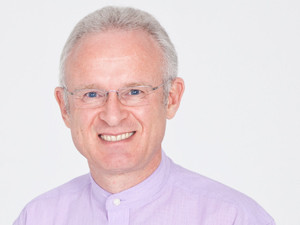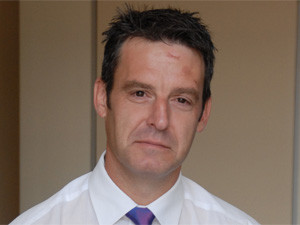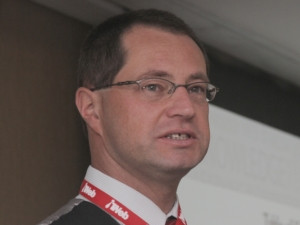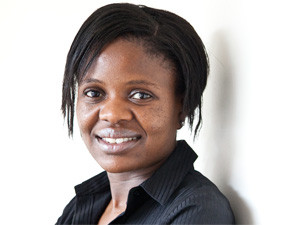
While the Independent Communications Authority of SA's (ICASA's) new draft termination rates may result in podium players taking a knock in revenues, consumers are set to benefit as the market begins to morph into a more competitive and level playing field.
SA's telecommunications market - long criticised for being a top-heavy duopoly with some of the most expensive mobile tariffs in the world - was given a significant windfall on Friday, when ICASA announced termination rates would be put on a glide path that will ultimately see them reach an all-time low of 10c. Mobile termination rates (MTRs or interconnect fees) are the fees operators pay to carry calls on each other's networks.
While Vodacom and MTN - which together enjoy more than 90% of the mobile market revenue - will see their interconnect revenues dented, smaller players Cell C and Telkom Mobile were given a leg up with a five-year glide path for asymmetrical rates, which means they will pay lower MTRs to the leading networks.
While these are wholesale rates, analysts say the saving is likely to be passed on to the consumer, starting in March next year with the first drop and with mobile call costs perhaps even reaching a 60c per minute rate by 2016.
The World Economic Forum recently ranked SA 117th out of 140 countries on a global scale, in terms of mobile tariffs. Egypt is ranked cheapest. On the continent, SA is ranked 30th out of 34 African countries.
Win some, lose some
World Wide Worx MD Arthur Goldstuck says the new MTRs will "cut deeply" into Vodacom and MTN's revenue and profit. "They used to argue interconnect was a zero-sum game, but it has become obvious in their results that it is not. They profit nicely from MTRs."
Goldstuck expects to see the resistance SA's duopoly has shown to lower MTRs to continue. "There are many revenue streams as a result of interconnect. It has a big impact on them and that is the reason they resisted so heavily."
As for Cell C and Telkom Mobile, he says, the new MTRs "certainly give them a chance" to compete, even though the industry structure has long been one of imbalance.

Ovum analyst Richard Hurst says any knock in potential revenues for Vodacom and MTN is bound to have an adverse effect. "The key challenge will be in being able to manage this drop and augment revenue streams with other services such as mobile data, value-added services and mobile apps."
For Cell C and Telkom Mobile, says Hurst, the new determination will allow these smaller players to gain a foothold in the market.
Telecoms and market analyst at Africa Analysis, Dobek Pater, says while lower MTRs do not automatically mean Vodacom and MTN will see their profitability negatively impacted, the two will record lower revenues in this sphere.
While the proposed asymmetry glide path will assist Cell C and Telkom Mobile with cash flow, Pater notes it will not necessarily assist Cell C in terms of net profitability or significant improvement in its earnings before interest, taxes, depreciation and amortisation margins.
"Asymmetry is designed to protect to a degree new (small) mobile operators from the larger operators in terms of outflow of cash and allow them to use that time to become competitive and 'stand on their own two feet'. In the case of Cell C, it has been competing in the market for several years now. Its future success (or lack thereof) will be the result of its strategy and approach to the market, not the MTR asymmetry."
He says MTR asymmetry may be more applicable in the case of Telkom Mobile. "But [the fourth mobile player] is a very late entrant into the market, trying to compete with two very strong operators and a smaller one (but much bigger than Telkom Mobile) which also has ambitions of growing big and is prepared to fight a price war to achieve that. I'm not sure the asymmetrical MTRs will be of much help to Telkom Mobile given its small active subscriber base. It has more significant challenges in the market."
Consumer benefit
Hurst says he does not see the consumer realising an immediate benefit, considering MTRs are a wholesale issue, but over the short- to medium-term there are likely to be some "significant reductions" in price and a number of special offers coming to market.
Pater says the lower MTRs will probably result in lower retail tariffs, given the operators' behaviour over the past two years. "Lower MTRs will allow for the lowering of off-net tariffs. We have seen Cell C (and also Telkom Mobile) prepared to base their strategy on price competition, therefore, this may continue.
"On the other hand, operators may continue lowering on-net tariffs (as a response to lower off-net tariffs) in order to make their networks more attractive for existing and new subscribers. We may see retail tariff decreases in line with MTR reductions."
Hurst refers to recent reports that point out calling MTN-to-MTN costs more than a call to the US and says the likes of MTN are coming under the spotlight - and will be expected to begin offering lower tariffs.

Goldstuck is optimistic and says, starting from March next year, he expects the average cost of calls to come down dramatically.
"Lower MTRs could make calls much more affordable. The customer interconnect has always been a no-brainer, even though the operators tried to cast this as not being in the consumer's interest. This was pure spin. Six months from now, consumers can expect to start seeing prices coming down."
He says with the average cost of a call historically being about 40c to 50c on top of the incumbent interconnect fee, by 2016 SA could see average call costs of about 60c per minute.
Intervention
IDC analyst Spiwe Chireka says while ICASA's MTR and asymmetry determination is in itself a positive step, for the consumer's sake she would have liked to have seen some kind of new regulation on retail pricing from the authority.
"What the big boys [Vodacom and MTN] often do, is instead of reducing tariffs, they just introduce a new package with a lower rate, giving the impression that they have reacted and tariffs are going down. But if you think about it, this is not a true [across the board] reduction as they still retain the tariffs of their original offerings."
She says the only true tariff reductions have come from Cell C and Telkom Mobile. "Their tariff cuts are not promotional, and are not only applicable to certain of their customer base and they do not come with a monthly fee."

She says the industry would like to see more of this. "Given the history since the first MTR glide path in 2010, I am not bullish about the probability of consumer benefit. I actually expect a similar reaction pattern to follow."
ICASA is most likely aware of the wool-over-the-eyes tactics, says Chireka, advocating some kind of more aggressive intervention. "At some point there has to be an intervention [by ICASA or the Department of Communications] - even if it means they have to come in and force an across the board tariff reduction or some kind of common packages reduction.
Operators' reaction
MTN has not yet responded to a request for comment, while Vodacom says it is studying the proposed changes and will comment in due course.
Telkom Mobile and Cell C have been more vocal, with the latter warmly welcoming the move it has long fought tooth and nail for.
Telkom says the company sees the current termination rates as prejudicial to Telkom, and so welcomes the review of the termination rate regulations. "The company will analyse the draft regulations published on Friday and pronounce on the proposed regulation at an appropriate time. Telkom will also participate in the process through submitting its comments to ICASA."
Cell C CEO Alan Knott-Craig says: "It is really encouraging to see ICASA work quickly and efficiently, favouring neither friend nor foe."

He says ICASA has "blasted the way open" by drastically reducing the single largest cost factor in prices, "namely the MTR which both Vodacom and MTN enjoy".
Of all the players, he says, Telkom (fixed-line) wins hands down - although he does "not begrudge [Telkom] that". Goldstuck points out that, for the first time, Telkom will benefit from fixed-line asymmetry.
Knott-Craig says while his first instinct is to challenge ICASA, it has had to tread a fine line between under-reacting and over-reacting. "[The regulator] has done what it needed to do to make it possible for the telecoms market in SA to gain a semblance of normality.
"I would have wished for a better outcome for Cell C, but individual interests aside, the market will be a more competitive and balanced one with ICASA's proposed draft regulations on termination rates as they have currently proposed them."
Share